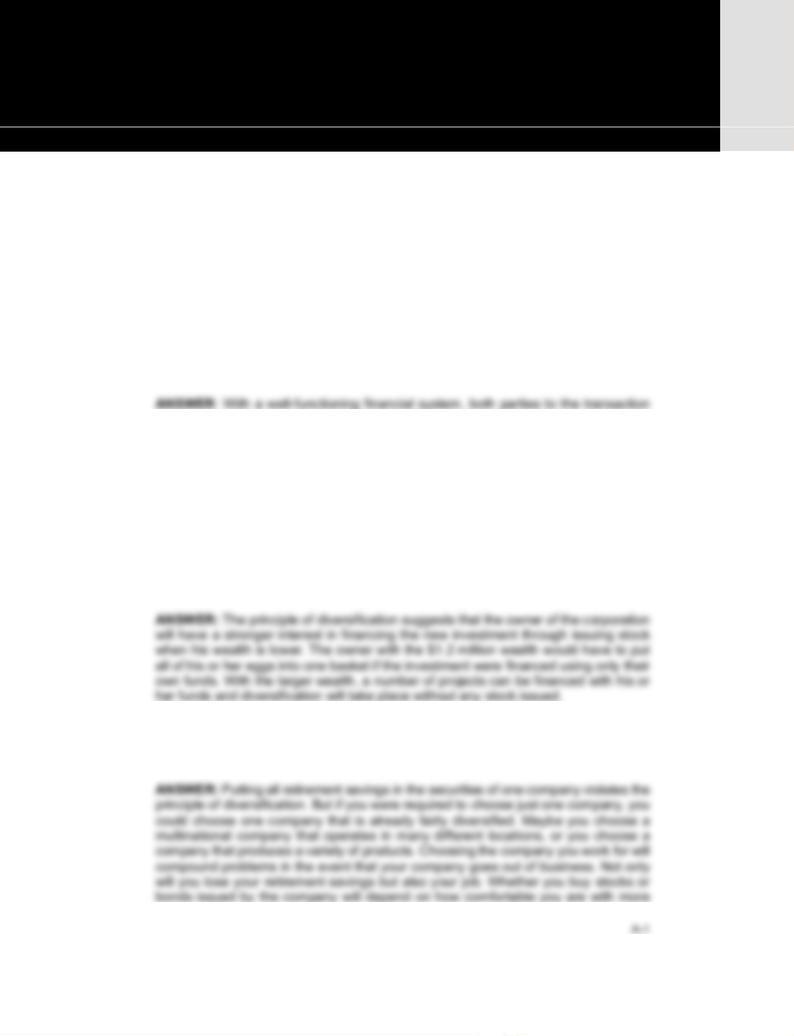
The Financial System
1. When financial markets channel funds from savers to investors, who benefits?
Explain.
benefit when funds are channeled from savers to investors. Investors are able to con-
duct projects that generate profits and savers are able to earn a positive return on
their funds by gaining access to some of these profits. The benefits of well-function-
ing financial markets go beyond the gains that accrue to the immediately involved
parties—here, the savers and investors. Since financial markets aid in the realization
of new investment projects—for example, the building of new factories—workers and
consumers also gain. The true benefit of financial markets lies in their supporting role
in fostering economic growth as measured by real GDP.
2. Suppose an owner of a corporation needs $1 million to finance a new investment.
If his total wealth is $1.2 million, would it be better to use his own funds for the in-
vestment or to issue stock in the corporation? What if the owner’s wealth is $1 billion?
3. Suppose you were required to put all your retirement savings in the securities of
one company. What company would you choose, and why? Would you choose the
company you work for? Would you buy stock or bonds?
CHAPTER 1 The Financial System A-1
chapter
1 2 3 4 5
6 7 8 9 10
11 12 13 14 15
16 17 18
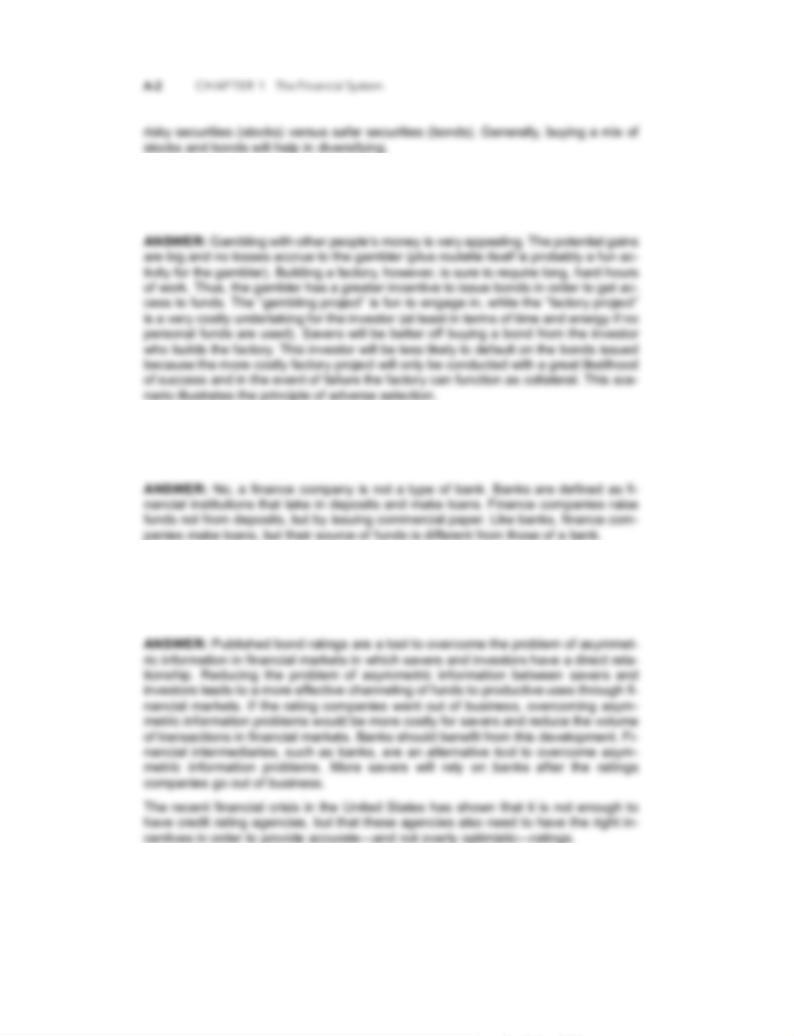
4. Suppose there are two investors. One has a project to build a factory; the other has
a project to visit a casino and gamble on roulette. Which investor has a greater in-
centive to issue bonds? Which investor’s bonds are better deals for savers?
5. Suppose a company raises funds by issuing short-term bonds (commercial paper).
It uses the funds to make private loans. Such a firm is called a finance company. Is
a finance company a type of bank?
6. Firms such as Moody’s and Standard & Poor’s study corporations that issue bonds.
They publish “ratings” for the bonds—evaluations of the likelihood of default. Sup-
pose these rating companies went out of business. What effect would this have on
the bond market? What effect would it have on banks?
7. National credit bureaus collect information on people’s credit histories. They are
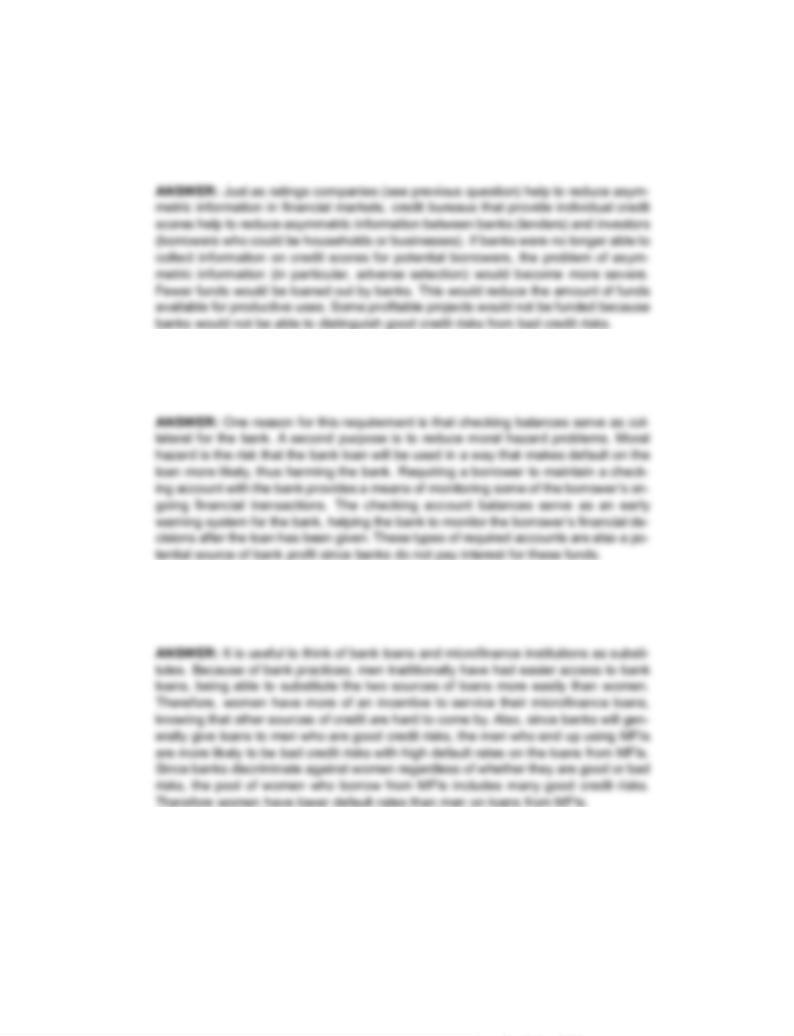
likely to know whether you ever defaulted on a loan. Suppose that a new privacy law
makes it illegal for credit bureaus to collect this information. What effect would this
have on the banking industry?
8. When a bank makes a loan, it sometimes requires borrowers to maintain a check-
ing account at the bank until the loan is paid off. What is the purpose of this require-
ment?
9. Microfinance institutions argue that (a) many traditional banks discriminate against
women in lending and (b) women have lower default rates than men on loans from
MFIs. Discuss how point (a) could explain point (b).
CHAPTER 1 The Financial System A-3
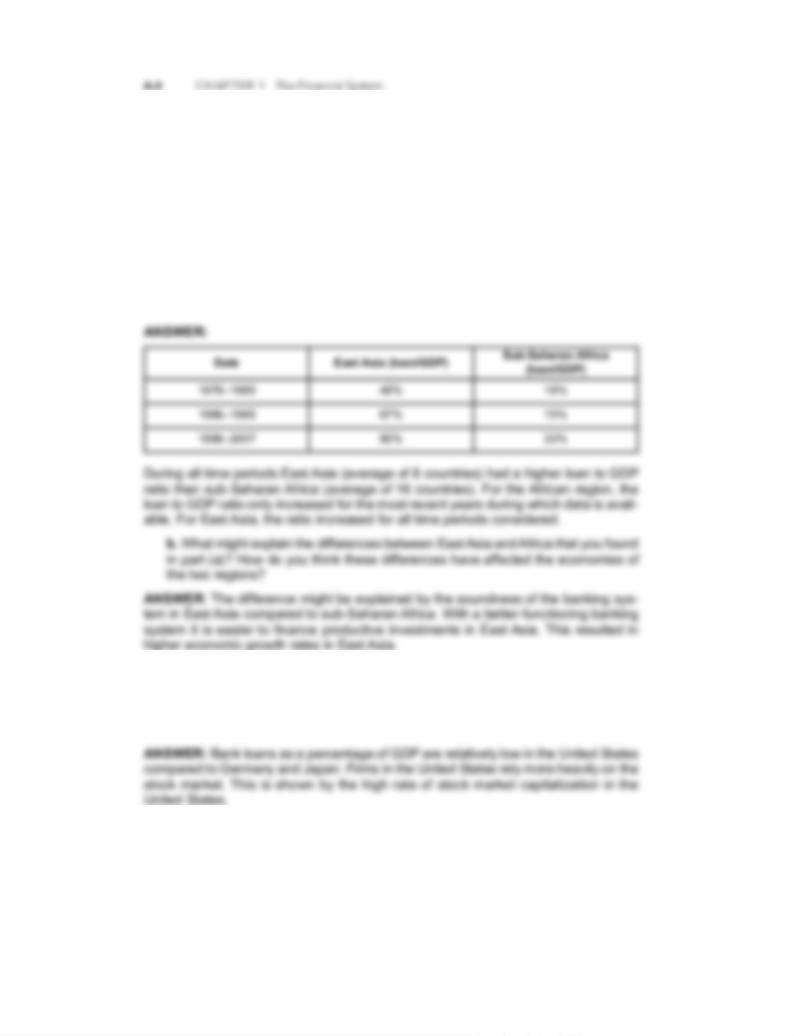
ONLINE AND DATA QUESTIONS
www.worthpublishers.com/ball2
10. The text Web site contains World Bank data on financial development. Using
these data, compare bank loans as a percentage of GDP in two groups of countries:
those in East Asia (8 countries) and those in sub-Saharan Africa (16 countries). For
each group, compute the average of the bank-loan variable for three time periods:
1976–1985, 1986–1995, and 1996–2007.
a. Which of the two regions has a higher level of bank loans? How has the level
of loans changed over time in each region?
11. In the World Bank data, examine bank loans as a percentage of GDP in the United
States, Germany, and Japan. Is the level of bank loans relatively high or low in the
United States? What might explain this fact? (Hint: See the data on stock market cap-
italization in the three countries.)
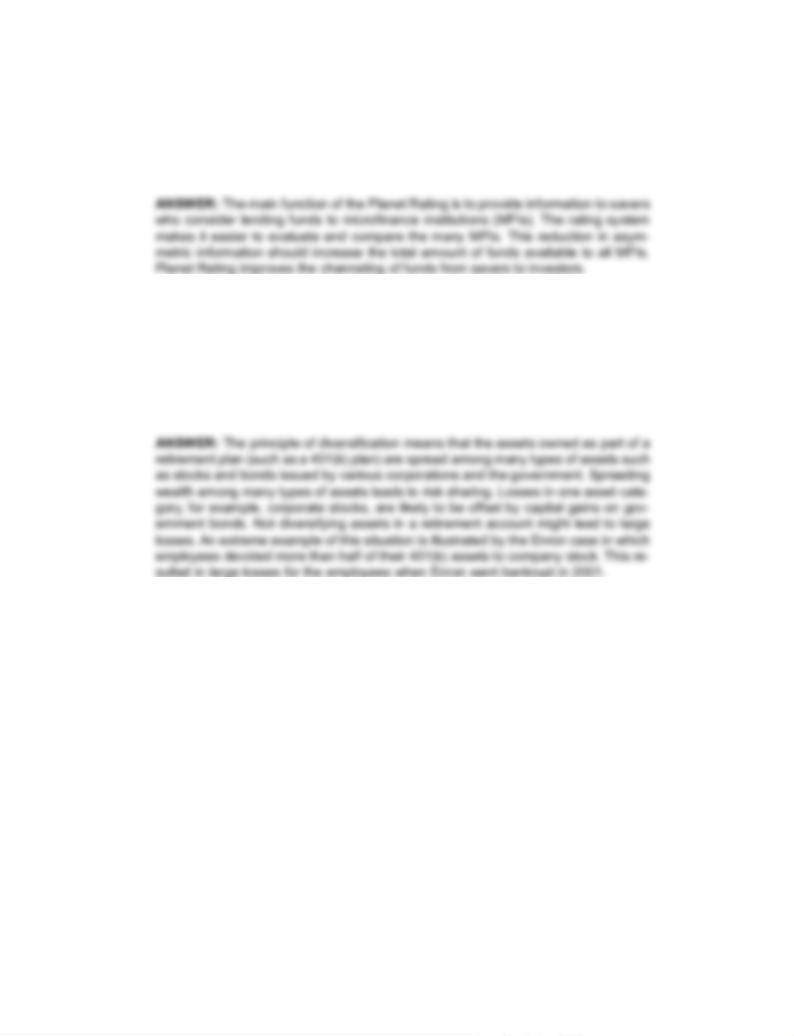
12. Link at the Web site to Planet Rating, a French organization that calls itself “the
global microfinance rating agency.” What is the main function of Planet Rating? How
might its work help the microfinance industry to grow?
A SMALL RESEARCH PROJECT
13. Do you know someone (such as a parent) who is working and saving for retire-
ment? Does he or she have money in a 401(k) plan? What securities does the per-
son hold through the plan? Does he or she follow the principle of diversification?
CHAPTER 1 The Financial System A-5
